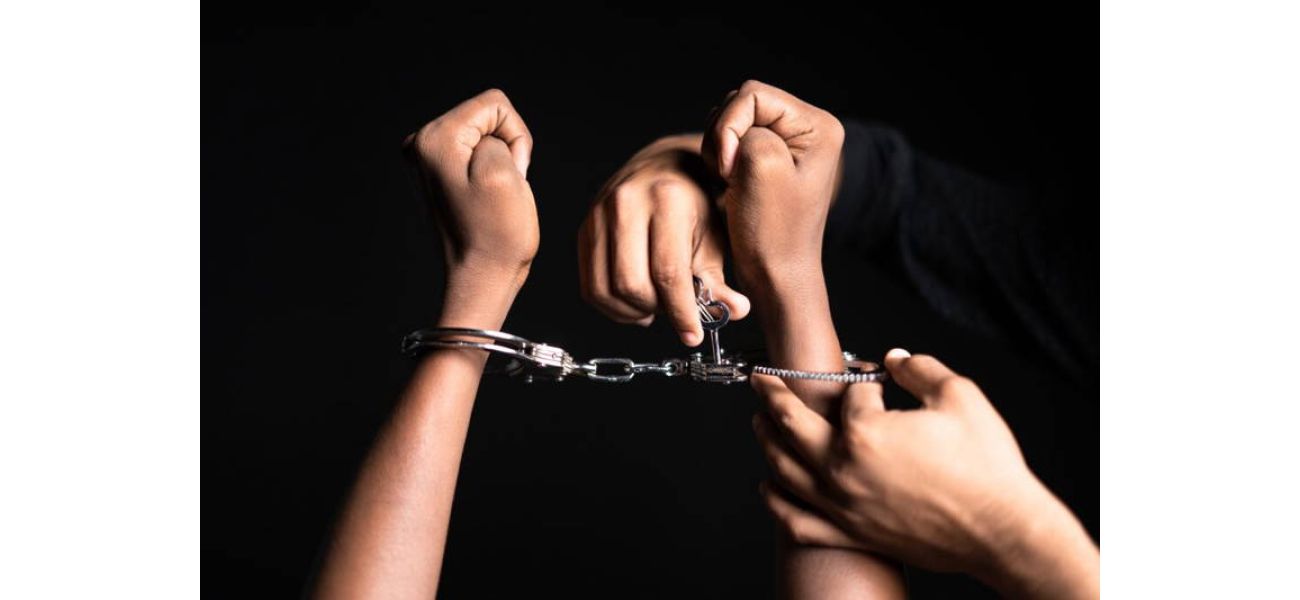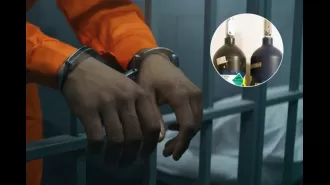NC death row inmates may have sentences reevaluated after a black man's trial was found to be unfair.
NC death row inmates could receive new sentences if their case involved an all-white jury and they are determined to be Black.
February 11th 2025.

Last week, a judge made a decision that could have a major impact on death row inmates in North Carolina. The ruling stated that the trial of a Black defendant, Hasson Bacote, was compromised by the presence of an almost all-white jury. This means that Bacote and other inmates may have the opportunity to seek resentencing.
In 2009, Bacote was convicted and sentenced to death by a jury of 10 white jurors and two Black jurors for his involvement in a felony murder. However, after his case was taken up by the American Civil Liberties Union (ACLU), it was determined that discrimination had occurred during his trial. This brings into question the extent of the 2009 Racial Justice Act, a state law that allows inmates to seek resentencing if they can prove racial bias influenced their case.
If it is found that Bacote's trial was affected by discrimination, it could open the door for the other 122 death row inmates in North Carolina to challenge their sentences. This potential outcome has been supported by the ACLU, who assisted in Bacote's case, and could set a precedent for future legal battles.
Cassandra Stubbs, director of the ACLU's Capital Punishment Project, stated, "What we saw in Mr. Bacote's case is that the more we investigate potential discrimination in our state's capital jury selection system, the more we find." She believes that this ruling could bring justice to not only Bacote, but also the many others who have filed claims and had their cases tainted by bias.
On December 31, outgoing Gov. Roy Cooper commuted Bacote's death sentence, along with 15 others, to life in prison without the possibility of parole. While Cooper stated that no single factor was decisive in his decision, he did acknowledge the potential influence of race in the case, including the race of the defendant and victim, as well as the composition of the jury.
Bacote, who was 20 years old at the time, was charged with the murder of 18-year-old Anthony Surles in a 2007 home robbery attempt. He was convicted alongside two other individuals, who were later released from prison after being convicted on lesser charges. During a hearing last year, Bacote's lawyers argued that there was a history of racial discrimination in jury selection in Johnston County, where his trial took place.
They claimed that prosecutors in the county were more likely to exclude people of color from the jury pool compared to white jurors. In fact, prosecutors in Bacote's case removed prospective Black jurors at a rate more than three times higher than white jurors. This, along with other evidence, led to the conclusion that racial bias played a role in Bacote's trial.
After the ruling, Bacote expressed his relief and gratitude. "When my death sentence was commuted by Gov. Cooper, I felt an enormous weight lifted off my shoulders," he said. "I am grateful to the court for having the courage to recognize that racial bias affected my case and so many others."
This decision comes after news that the mayor of NYC, Bill de Blasio, received a jailhouse baptism from Reverend Al Sharpton on Good Friday. While these two stories may seem unrelated, they both highlight the ongoing issues of racial discrimination and the fight for justice in our justice system.
In 2009, Bacote was convicted and sentenced to death by a jury of 10 white jurors and two Black jurors for his involvement in a felony murder. However, after his case was taken up by the American Civil Liberties Union (ACLU), it was determined that discrimination had occurred during his trial. This brings into question the extent of the 2009 Racial Justice Act, a state law that allows inmates to seek resentencing if they can prove racial bias influenced their case.
If it is found that Bacote's trial was affected by discrimination, it could open the door for the other 122 death row inmates in North Carolina to challenge their sentences. This potential outcome has been supported by the ACLU, who assisted in Bacote's case, and could set a precedent for future legal battles.
Cassandra Stubbs, director of the ACLU's Capital Punishment Project, stated, "What we saw in Mr. Bacote's case is that the more we investigate potential discrimination in our state's capital jury selection system, the more we find." She believes that this ruling could bring justice to not only Bacote, but also the many others who have filed claims and had their cases tainted by bias.
On December 31, outgoing Gov. Roy Cooper commuted Bacote's death sentence, along with 15 others, to life in prison without the possibility of parole. While Cooper stated that no single factor was decisive in his decision, he did acknowledge the potential influence of race in the case, including the race of the defendant and victim, as well as the composition of the jury.
Bacote, who was 20 years old at the time, was charged with the murder of 18-year-old Anthony Surles in a 2007 home robbery attempt. He was convicted alongside two other individuals, who were later released from prison after being convicted on lesser charges. During a hearing last year, Bacote's lawyers argued that there was a history of racial discrimination in jury selection in Johnston County, where his trial took place.
They claimed that prosecutors in the county were more likely to exclude people of color from the jury pool compared to white jurors. In fact, prosecutors in Bacote's case removed prospective Black jurors at a rate more than three times higher than white jurors. This, along with other evidence, led to the conclusion that racial bias played a role in Bacote's trial.
After the ruling, Bacote expressed his relief and gratitude. "When my death sentence was commuted by Gov. Cooper, I felt an enormous weight lifted off my shoulders," he said. "I am grateful to the court for having the courage to recognize that racial bias affected my case and so many others."
This decision comes after news that the mayor of NYC, Bill de Blasio, received a jailhouse baptism from Reverend Al Sharpton on Good Friday. While these two stories may seem unrelated, they both highlight the ongoing issues of racial discrimination and the fight for justice in our justice system.
[This article has been trending online recently and has been generated with AI. Your feed is customized.]
[Generative AI is experimental.]
0
0
Submit Comment





